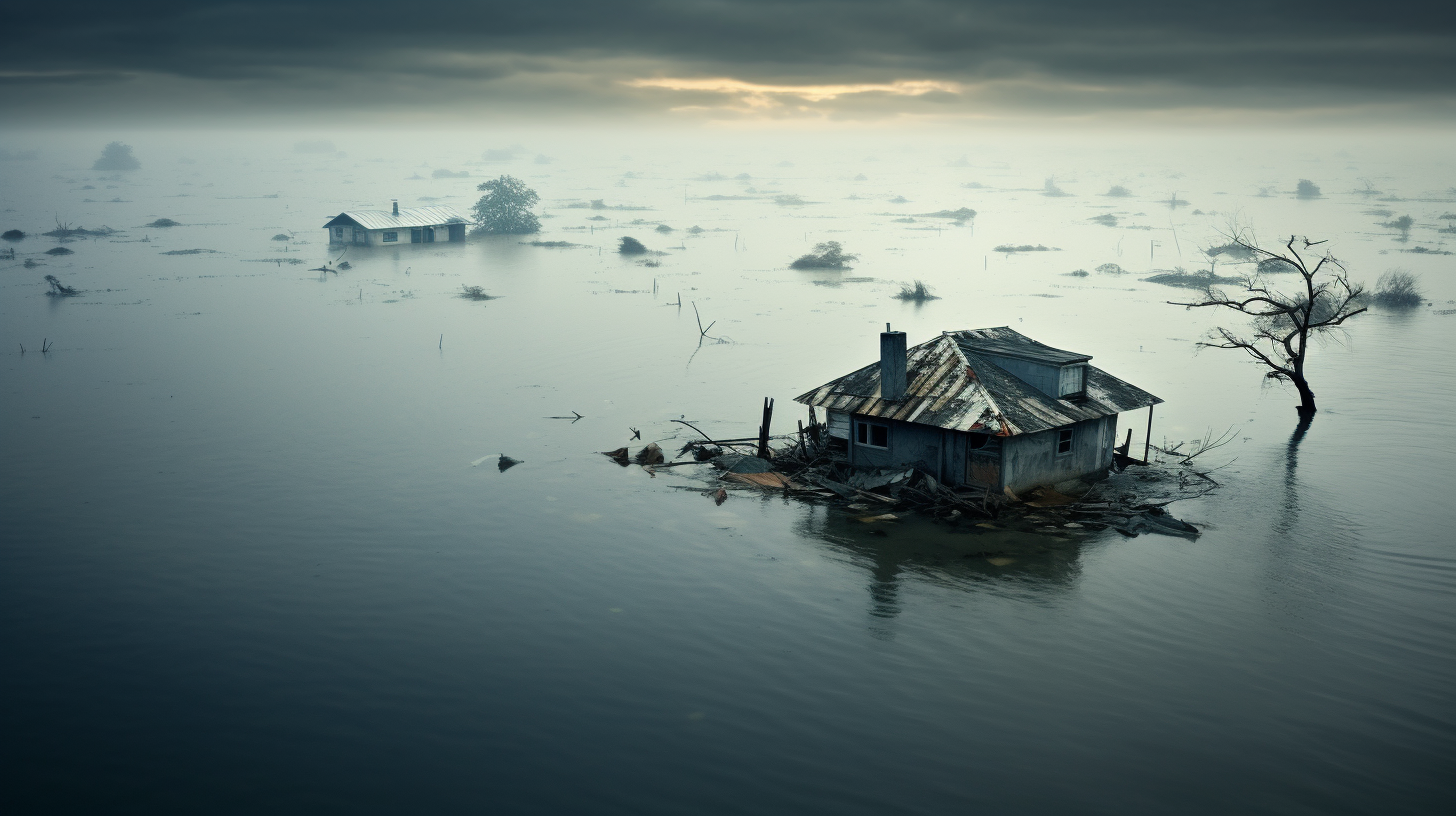The tides, once gentle shepherds lapping at the edges of our agrarian cradle, have turned ravenous. Drowning Harvests – The Agony of Sea Level Rise on Agrarian Societies examines this new reality, drawing back the curtain on the despairing struggle of food growers. Catastrophic flooding has left earthen furrows briny and barren, sea water seeping into the nurturing grounds to choke the very sustenance of life – our crops.
Rice paddies in Southeast Asia, amber waves of Midwestern grains, and the lush vineyards of Europe are now the reluctant seascape as Mother Nature forcibly reclaims land once usurped for mankind’s agrarian pursuits. The perpetual battle between water and earth has tilted in the ocean’s favor, leaving a salty tear on the cheek of rural regions. The relentless advance of saline water has not only submerged homes but also diluted or depleted the fertile depths needed to raise crops.
In this surreal new world, farmers prune seaweed instead of grapevines; they harvest salt-tolerant samphire in place of succulent strawberries. Yet, it’s not a tale of efficient adaptation, but a forced acquiescence to the harsh reality of a planet in distress. But should we mourn the sunken filigrees of farmlands or marvel at the tenacity of those who stick their plows into the sodden ground? The article reveals this grievous transformation through poignant personal narratives – the vineyard owner watching her legacy dissolve into a saline graveyard, the rice farmer who now treads through waist-deep waters to tend to his floating crops.
As we dive into the origins of our dire present, we see the warnings of the past. Prominent scientist Dr. Ishmael, in a harrowing 2021 interview, predicted the nullification of traditional farming by the rise of the seas, warning of a future where hunger pangs are as common as the overfishing tales we once scoffed at. His prophecies, once dismissed by agricultural giants, now echo in the desolate silence of vast, underwater fields.
We explore speculative yet eerily possible futures – hydropolitics dictating the flow of fresh water and the new power balances it creates; genetically-modified supercrops designed for saline resilience, a Hail Mary in mankind’s agricultural playbook; and the social implications of a world where the lines between farmer and fisherman are perilously blurred.
In the throes of this despondence, contrast is our sharpest storyteller. Looking through the murky waters to our recent past, we revisit previously explored dystopian landscapes, such as the kitchen gardens bobbing atop the sunken metropolises in ‘Attics of the Ocean’, and the eerie spirituality lingering over half-drowned temples in ‘The Sinking Sanctuaries’. We recall the fury in embracing aquatic habitats in ‘Doomed for Wetlands’, understanding now that our agrarian society’s fate was just as sealed.
The specter of technology offers scant solace. Once bountiful yields imagined through the lens of innovation and artificial intelligence have become relics of hope in this saltwater-soaked reality. Machinery lies idly by, rusting memorials to our ambition.
As the narrative unfolds, readers are enveloped in a chiaroscuro of human persistence against nature’s relentless rewrite. Those picturing this dystopia may see an echo of humanity’s narrative arc, where adaptability is both our curse and our salvation.
However, contrary to the repository of human spirit found in our previous articles, ‘Drowning Harvests’ is unique in its portrayal of devastation without redemption. Here, the bitterest pill to swallow is the notion that resiliency has its breaking point, and that the food producers – who once held the mantle of civilization’s sustainers – might now bear witness to its undoing.
